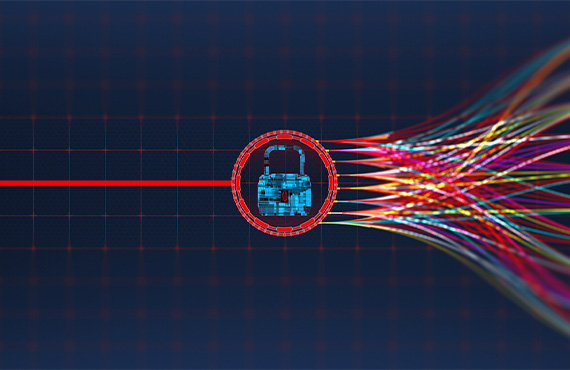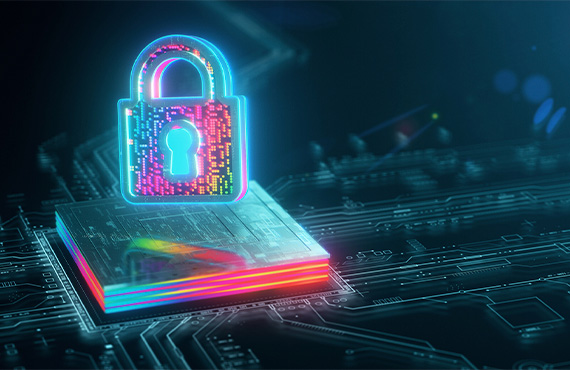
The threat of cyberattacks is more prevalent than ever before. As businesses increasingly rely on digital systems and automation technologies, the potential for malicious actors to exploit vulnerabilities and wreak havoc has intensified.
Cyberattacks can take various forms, ranging from distributed denial-of-service (DDoS) attacks that overwhelm systems with traffic to sophisticated malware designed to infiltrate networks and steal sensitive data.
The consequences of a successful cyberattack can be devastating for any organization. Beyond the immediate disruption to operations and potential financial losses, a breach can severely damage a company's reputation, erode customer trust, and lead to costly legal battles and regulatory fines. In the worst-case scenarios, cyberattacks can even compromise public safety and national security.
Cybercriminals are constantly evolving their tactics, employing advanced techniques such as social engineering, zero-day exploits, and supply chain attacks to bypass traditional security measures. As a result, businesses must remain vigilant and proactive in their cybersecurity efforts, continuously assessing and fortifying their defenses against these ever-present threats.
Understand Process Automation Control Systems
Process automation control systems are the backbone of modern industrial operations, playing a critical role in monitoring, controlling, and optimizing various processes across diverse industries. These systems consist of interconnected hardware and software components that seamlessly integrate and coordinate the functioning of machinery, equipment, and processes.
In the manufacturing sector, process automation control systems ensure precise control over production lines, enabling efficient and consistent output while maintaining quality standards. They regulate temperature, pressure, flow rates, and other parameters to achieve optimal operational conditions. Similarly, in the energy sector, these systems are indispensable for power generation, distribution, and management, ensuring reliable and uninterrupted energy supply.
Process automation control systems are also vital in the chemical and life sciences industries, where they maintain strict control over complex reactions, blending processes, and environmental conditions. This level of precision is essential for producing high-quality products while adhering to stringent safety and regulatory requirements.
Beyond traditional industries, process automation control systems are increasingly being adopted in sectors such as water treatment, food and beverage production, and even building automation systems for commercial and residential facilities. Their ability to monitor and control various processes in real-time, while collecting and analyzing data, enables organizations to optimize operations, reduce waste, and improve overall efficiency.
The significance of process automation control systems lies in their ability to ensure consistent, reliable, and safe operations, while minimizing human intervention and potential errors. By automating complex processes, these systems not only enhance productivity but also contribute to cost savings, quality control, and environmental compliance.

Vulnerabilities in Process Automation Controls
Process automation control systems are susceptible to various vulnerabilities that can be exploited by cybercriminals. One major vulnerability lies in outdated software and operating systems. Many industrial control systems run on legacy software that is no longer supported or patched by the vendor, leaving them open to known vulnerabilities and potential attacks.
Another vulnerability stems from remote access capabilities. While remote access is essential for monitoring and maintaining these systems, it also creates an entry point for unauthorized access if not properly secured. Weak authentication mechanisms, insecure protocols, or misconfigured firewalls can all contribute to this vulnerability.
Human error is another critical factor that can lead to cybersecurity breaches. Employees may inadvertently introduce malware into the system through infected removable media, fall victim to phishing attacks, or mishandle sensitive information, compromising the system's security.
Further, the increasing interconnectivity of industrial control systems with corporate networks and the internet expands the attack surface, making them more vulnerable to threats originating from external sources. Inadequate network segmentation and lack of robust security controls can leave these systems exposed to potential attacks.
Consequences of Cybersecurity Breaches
Failing to secure your process automation control systems can have devastating consequences for your organization. A successful cyberattack can cripple your operations, leading to costly downtime, production losses, and compromised product quality. Imagine a scenario where malicious actors gain unauthorized access to your control systems, disrupting critical processes and causing chaos on the production floor.
The financial implications of an OT/IT and ICS cybersecurity breach can be staggering. From lost revenue due to operational disruptions to hefty fines and legal fees resulting from regulatory non-compliance, the costs can quickly escalate. Furthermore, the damage to your brand's reputation and customer trust can be severe, potentially leading to long-term loss of market share and diminished stakeholder confidence.
Regulatory bodies impose stringent cybersecurity requirements on industries that rely on process automation control systems. Non-compliance can result in severe penalties, including substantial fines, temporary shutdowns, or even the revocation of operating licenses. By prioritizing cybersecurity solutions, you not only protect your assets but also ensure adherence to industry standards and avoid costly regulatory consequences.

Implement Cybersecurity Best Practicies
As the digital landscape evolves, implementing robust cybersecurity measures becomes paramount for safeguarding your process automation control systems. Proactive measures can fortify your defenses against potential threats and mitigate the risks of costly breaches or operational disruptions.
Regular software updates play a crucial role in maintaining the integrity of your systems. Promptly installing security patches and updates ensures that known vulnerabilities are addressed, reducing the attack surface for malicious actors. Neglecting this critical step can leave your systems exposed to exploits and compromise your overall security posture.
Access controls are another essential component of a comprehensive cybersecurity strategy. Implementing strict access management protocols, such as role-based access controls, multi-factor authentication, and rigorous password policies, can prevent unauthorized access and minimize the risk of insider threats. By limiting access to sensitive systems and data, you can reduce the potential for accidental or intentional misuse.
Employee training is also a vital aspect of cybersecurity best practices. Educating your workforce on the importance of cybersecurity, recognizing potential threats, and adhering to security protocols can significantly enhance your organization's overall security posture. Regular training sessions, simulated phishing exercises, and awareness campaigns can cultivate a security-conscious culture within your organization.
Incident response planning is a proactive measure that prepares your organization to effectively respond to and recover from potential cybersecurity incidents. By developing a comprehensive incident response plan, you can streamline the process of identifying, containing, and mitigating the impact of a security breach. This plan should outline clear roles, responsibilities, and communication channels, enabling your organization to respond swiftly and minimize the potential consequences of a cybersecurity incident.
By implementing these cybersecurity best practices, you can fortify the defenses of your process automation control systems, safeguarding your critical operations, data, and assets from potential threats. Remember, cybersecurity is an ongoing process that requires continuous vigilance, adaptation, and commitment to staying ahead of evolving cyber risks.
Compliance Regulatory Requirements
In the realm of process automation control systems, adhering to compliance and regulatory requirements is crucial for maintaining robust cybersecurity measures. These standards are designed to safeguard critical systems, protect sensitive data, and mitigate the risks associated with cyber threats.
One of the most notable regulatory frameworks is the International Society of Automation (ISA) and the International Electrotechnical Commission (IEC) standards, specifically the IEC 62443 series. These standards provide a comprehensive set of guidelines for securing industrial automation and control systems, covering various aspects such as risk assessment, system design, and operational procedures.
Additionally, industries like pharmaceuticals and life sciences must comply with regulations set forth by governing bodies like the Food and Drug Administration (FDA) and the European Medicines Agency (EMA). These regulations emphasize the importance of data integrity, system validation, and cybersecurity measures to ensure the safety and quality of products.
Failure to comply with these regulatory requirements can result in severe consequences, including financial penalties, legal implications, and damage to reputation. Moreover, non-compliance can potentially compromise the safety and reliability of critical processes, putting human lives and the environment at risk.
In the ever-evolving landscape of cybersecurity threats, a reactive approach is no longer sufficient. You must adopt a proactive mindset, continuously assessing and fortifying your cybersecurity defenses to stay ahead of potential attacks. Cybercriminals are constantly developing new techniques and exploiting emerging vulnerabilities, making it crucial to anticipate and mitigate risks before they can cause harm.

Partner with Proconex for Your Cybersecurity Solutions
As a trusted Emerson Impact Partner with over 70 years of experience, we offer unparalleled expertise in implementing robust cybersecurity measures for process automation control systems. By partnering with Proconex, you gain access to a team of highly skilled professionals who are dedicated to safeguarding your assets and ensuring the integrity of your operations.
Proconex understands the unique challenges and complexities of cybersecurity in the industrial automation realm. Our deep knowledge of Emerson Automation Solutions and a wide range of industries, including Life Sciences, Chemical, Power, Refining, Oil & Gas, Food & Beverage, Paper, Metals, and more, allows them to tailor our cybersecurity solutions to your specific needs.
With a sharp focus on safety and quality, Proconex takes a proactive approach to cybersecurity, implementing preventive measures and continuously monitoring for potential threats. Our comprehensive solutions encompass risk assessments, vulnerability management, incident response planning, and ongoing security monitoring and maintenance.
By partnering with Proconex, you benefit from their extensive resources, including state-of-the-art technologies, industry best practices, and a team of certified professionals. Our commitment to staying ahead of the curve ensures that your cybersecurity measures are always up-to-date and effective against the ever-evolving threat landscape.
And Proconex's strategic locations across the Mid-Atlantic region enable us to provide prompt and efficient support, minimizing downtime and ensuring business continuity in the event of a cybersecurity incident.
Entrusting your cybersecurity needs to Proconex means gaining a trusted partner who prioritizes the protection of your assets, the safety of your operations, and the preservation of your reputation. With our expertise, resources, and unwavering commitment to excellence, Proconex empowers you to confidently navigate the complexities of cybersecurity in process automation control systems.
